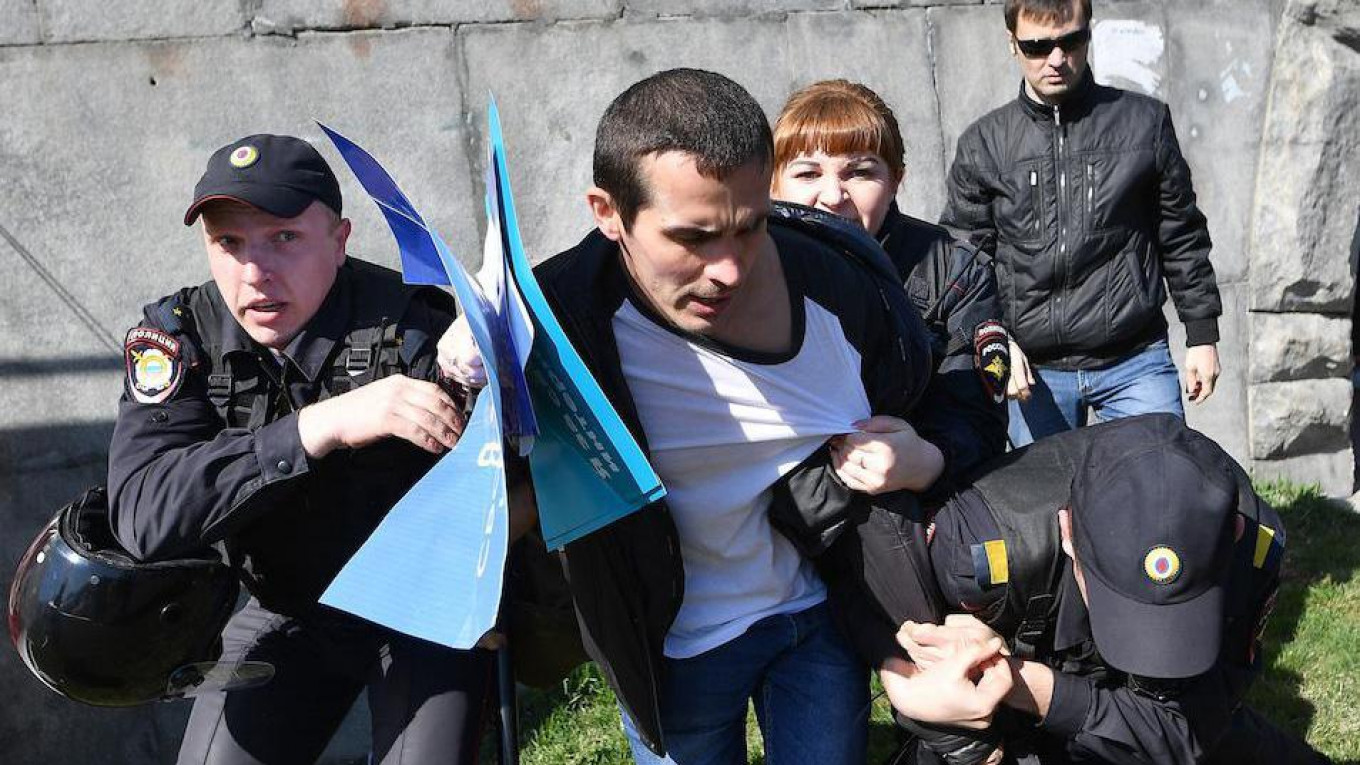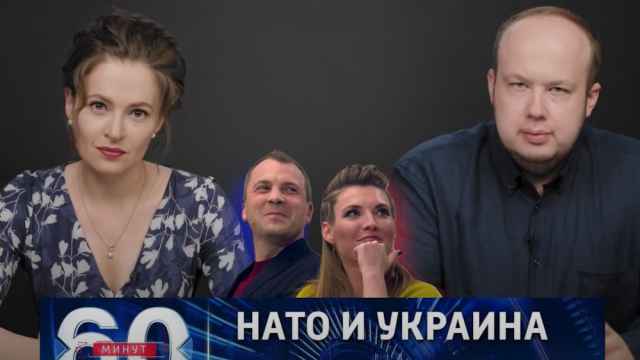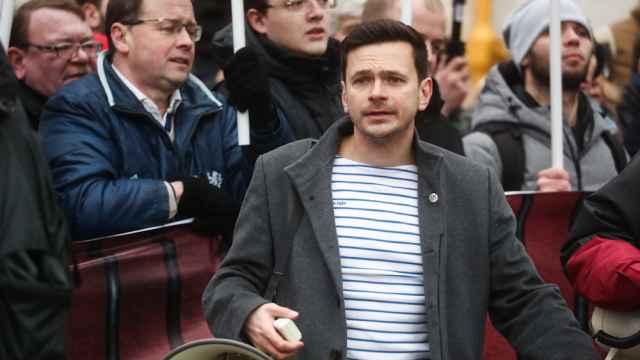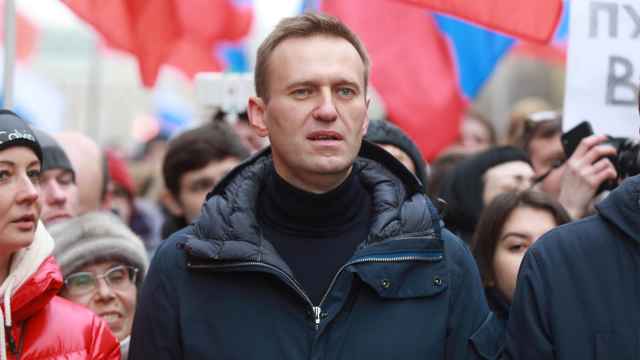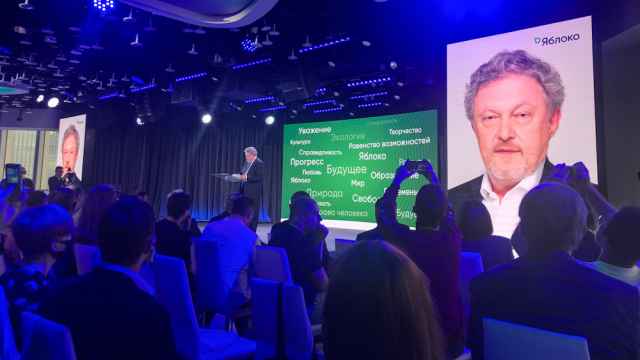Two days before President Vladimir Putin is due to be inaugurated for a fourth time, more than 1,600 people were detained across Russia at protests against his extended rule.
It was the first major protest against Putin since January. Then, opposition politician Alexei Navalny had called for a boycott of the March elections after he was barred from standing due to a fraud conviction that his supporters say is politically motivated. The mostly peaceful protests drew thousands onto the streets.
They did not, however, stop Putin from winning 77 percent of the vote. The president was re-elected with a record number of ballots, making him the longest-serving leader since Josef Stalin.
Unlike January’s demonstration, the protests on Saturday turned violent. While thousands across the country — from Vladivostok in the Far East to Kaliningrad on the Baltic Sea — marched in the protests which were called by Navalny last month, it was in the capital where the clashes were most severe.
By the time Navalny’s supporters arrived at Pushkin Square at 2 p.m., several hundred pro-Kremlin “volunteer” militia had already occupied the square. Wearing orange-and-black St. George’s ribbons — a symbol of patriotism — they approached protesters aggressively, tearing up signs that read: “He is not our tsar” and “I am against corruption.”
As the groups converged, a pro-Kremlin activist punched Alexei Berezhkin, a 27-year-old Navalny supporter. A policeman intervened, telling the aggressor to disperse. Then he spoke sternly to Berezhkin. “The policeman told me I was blocking the man’s way,” Berezhkin told The Moscow Times.
Then came the arrests. Only fifteen minutes after Navalny’s supporters arrived en masse, riot police, known colloquially as “cosmonauts” for their bulbous helmets and armor, spilled into the square, snatching protesters one by one.
Those who weren’t taken stood firm. And when Navalny arrived on the scene around 2:25 p.m., they burst into cheers. Addressing the crowd, Navalny said, “I am proud of us for coming out here today.”
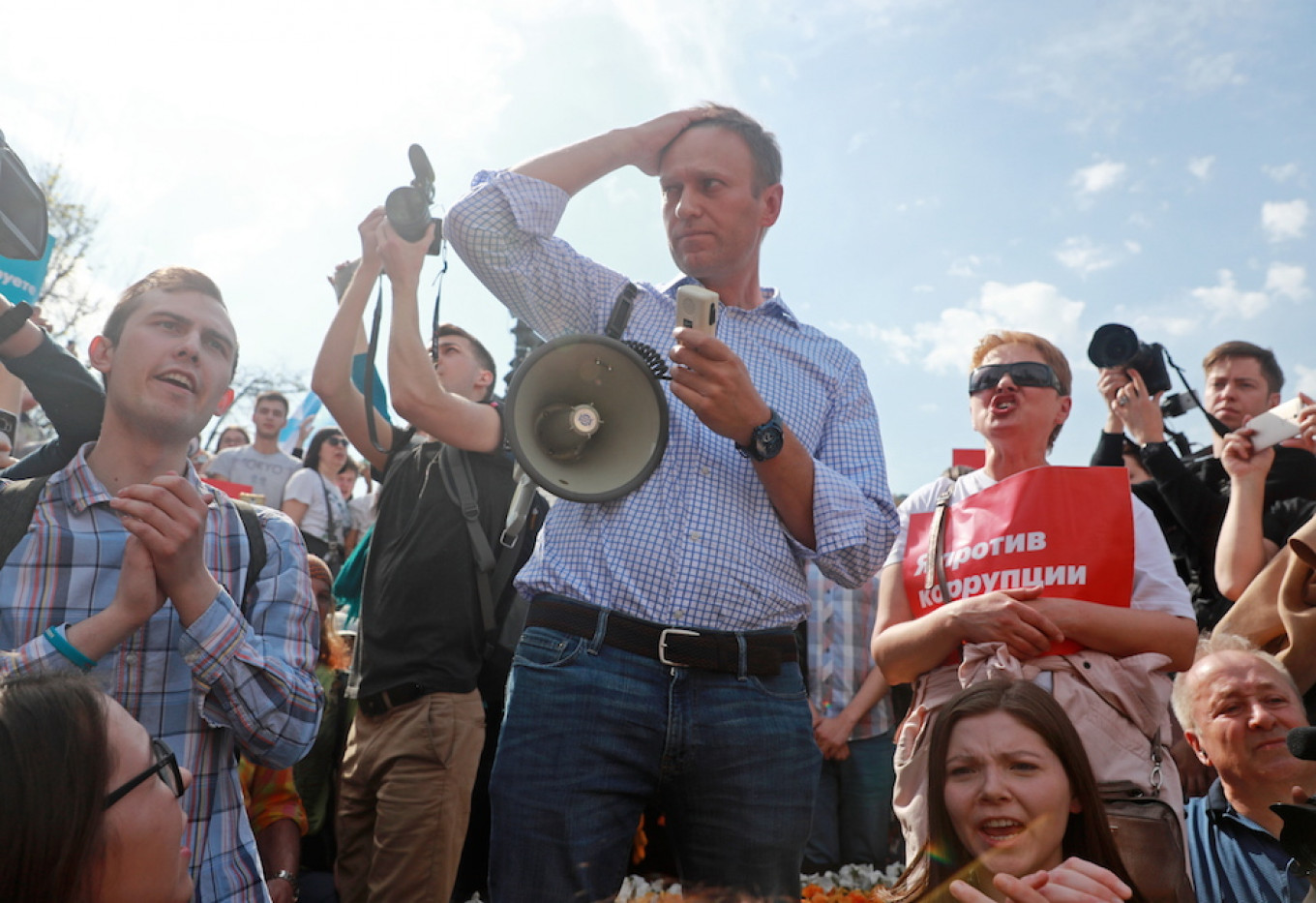
Ten minutes later, he, too, was detained.
As the riot police formed barricades to push protesters out of the square, they ran into the neighboring streets, cheering and clapping and chanting: “Down with the tsar!” and “Putin is a thief!”
Some protesters lit smoke bombs and threw bricks at policemen. Others were beaten bloody with batons in scenes that were reminiscent of the massive clashes between law enforcement and protesters on the eve of Putin’s inauguration in 2012. That day six years ago marked the beginning of a clampdown on Russia’s emerging opposition movement.
For some, Saturday was an opportunity to reaffirm that some semblance of the movement still exists in Russia.
“This is our only chance to have our voices heard,” Alexei Golyshev, a 42-year-old banker told The Moscow Times. “But more than that, it’s important for all of us to show each other that we are not down, that we are still here, that we are still fighting.”
Many of those present were long-time Navalny supporters — mostly young people who had come to multiple protests. Others had come out for the first time.
Svetlana, a 53-year-old electrician who declined to give her last name, was smiling as she listened to the protesters chant. “It’s so good to see that I’m not alone,” she said.
Although she had harbored doubts about Putin for some time, what finally pushed her over the edge, she said, was the recent ban on the Telegram messaging service. “If we don’t stop them they’ll soon block us off from the entire world,” she said. “Then we’ll be living like in ‘1984,’” she added, referring to the dystopian novel by George Orwell.
A week ago, more than 12,000 people gathered in central Moscow to protest the state media watchdog Roskomnadzor’s decision to block Telegram over its refusal to hand over encryption keys.
“Whether Navalny can galvanize those people will be a big test of his political strength,” said Grigory Golosov, a St. Petersburg-based political analyst.
Speaking to The Moscow Times on the eve of Saturday’s protest, though, analysts said that while Russians regularly take to the streets to demonstrate against specific issues, they are unlikely to protest the system as a whole.
Others noted the fact that Navalny has increasingly pushed away moderate Russians by refusing to align himself with other opposition politicians and being seen as unrelenting in his approach.
Moscow city authorities, for example, had proposed Prospekt Sakharova, a large avenue also in the city center but away from the main thoroughfare, as a location for the protest. But Navalny refused the opportunity to hold a legal protest, opting to organize his closer to the Kremlin instead.
“He is a revolutionary romantic,” said political analyst Dmitry Oreshkin. “This is a big problem. Your 40-year-old middle class educated Muscovite is not looking for a violent revolution.”
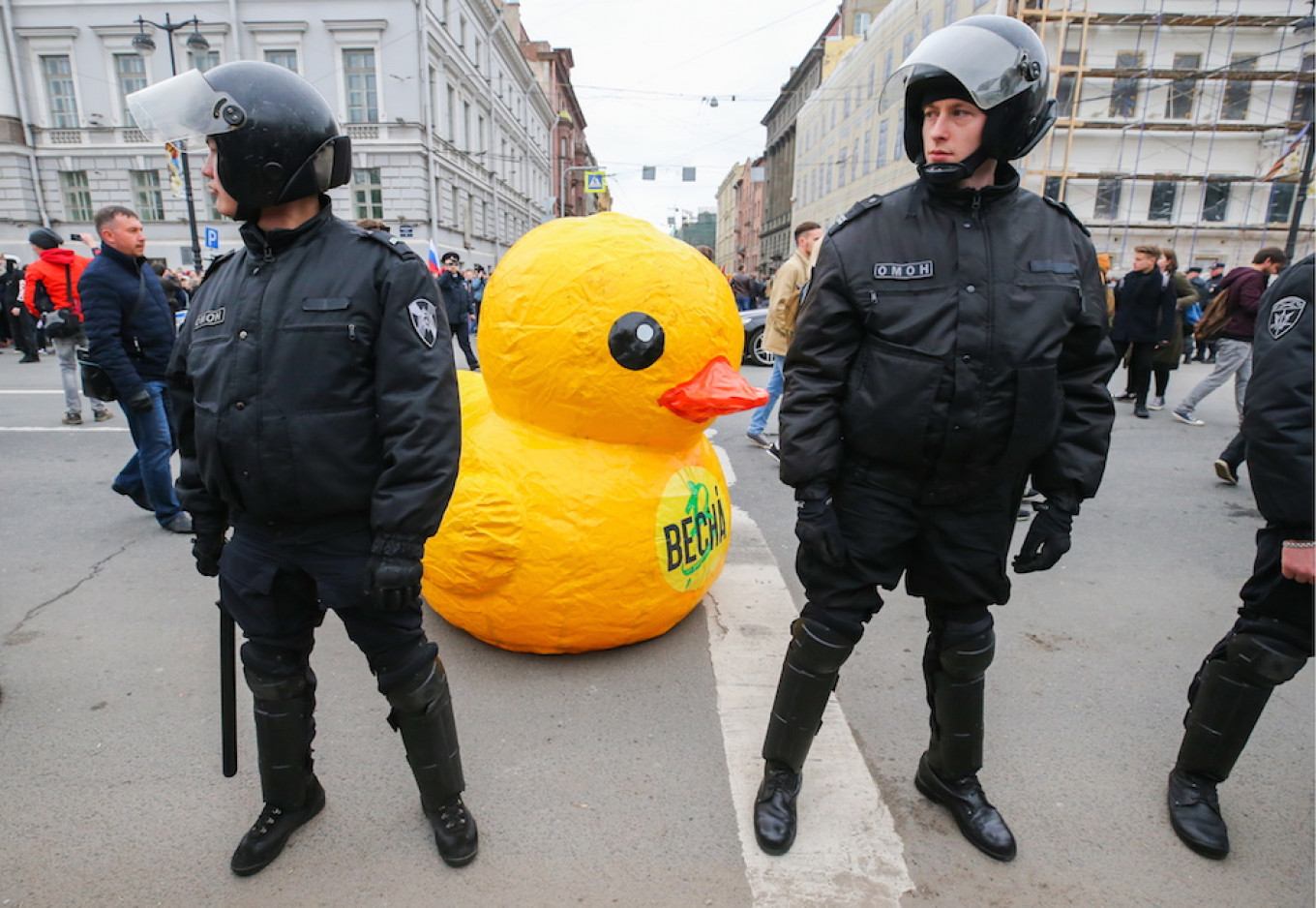
Some protesters, like 21-year-old university student and first-time protester Alexei, however, saw Navalny as their only hope of effecting change.
“I couldn’t care less if Putin stayed in office forever,” Alexei said, declining to provide his last name. “But he should follow the constitution. Right now, he is violating our rights to free speech. If before they limited what voices or information were heard, now they are blocking it out entirely," he said, referring to the Telegram ban.
“If enough of us come out to the street to show him we disagree,” he added, “maybe the government will stop what it’s doing.”
Most protesters who spoke to The Moscow Times, though, were not optimistic about change in the short term.
Leo Amigud, a 42-year-old IT worker, said he joined the protest out of solidarity with Russia’s youth.
“Right now, our only hope is supporting the young people you see out here today,” he said. “Eventually the old guard will pass away and I hope that we can leave a country in which young people can be free.”
A Message from The Moscow Times:
Dear readers,
We are facing unprecedented challenges. Russia's Prosecutor General's Office has designated The Moscow Times as an "undesirable" organization, criminalizing our work and putting our staff at risk of prosecution. This follows our earlier unjust labeling as a "foreign agent."
These actions are direct attempts to silence independent journalism in Russia. The authorities claim our work "discredits the decisions of the Russian leadership." We see things differently: we strive to provide accurate, unbiased reporting on Russia.
We, the journalists of The Moscow Times, refuse to be silenced. But to continue our work, we need your help.
Your support, no matter how small, makes a world of difference. If you can, please support us monthly starting from just $2. It's quick to set up, and every contribution makes a significant impact.
By supporting The Moscow Times, you're defending open, independent journalism in the face of repression. Thank you for standing with us.
Remind me later.



